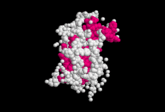Biosimilars
Biosimilars of pertuzumab
Pertuzumab is a monoclonal antibody that inhibits the dimerization of human epidermal growth factor receptor 2 (HER2) with other HER receptors, which prevents them from signalling in ways that promote cell growth and proliferation.
How can EU policymakers access the potential of biosimilars
Policymakers in Europe should introduce a long-term, multi-stakeholder framework to realize the full potential of off-patent biologicals and biosimilar drugs, according to the results of a series of roundtable discussions held with clinicians, government bodies and industry representatives [1].
Japanese approval for Lupin’s etanercept biosimilar
Indian generics manufacturer Lupin Pharmaceuticals (Lupin) announced on 26 March 2019 that its joint venture YL Biologics and Lupin (through its Japanese subsidiary, Kyowa Pharmaceutical Industry) had received approval from Japan’s medicines regulatory agency, the Pharmaceuticals and Medical Devices Agency (PMDA), for its etanercept biosimilar YLB113 in Japan.
Comparison of autoinjectors for inflammatory joint or bowel disease
Imraldi is a biosimilar of the antitumour necrosis factor (TNF) monoclonal antibody adalimumab. It was approved in Europe in August 2017 for the treatment of various inflammatory conditions [1].
Biosimilars of somatropin
Somatropin or human growth hormone (hGH) is a peptide hormone that stimulates growth, cell reproduction and cell regeneration in humans and other animals. It is thus important in human development. It is a type of mitogen which is specific only to certain kinds of cells. Growth hormone is a 191-amino acid, single-chain polypeptide that is synthesized, stored and secreted by somatotropic cells within the lateral wings of the anterior pituitary gland.
Bio-Thera advances bevacizumab and tocilizumab copy biologicals
China-based Bio‑Thera Solutions (Bio‑Thera) has made a licensing agreement for its bevacizumab copy biological and has started a phase III trial for its tocilizumab copy biological.
FDA approves trastuzumab biosimilar Trazimera
Pharma giant Pfizer announced on 11 March 2019 that the US Food and Drug Administration (FDA) had approved its biosimilar version of Roche’s Herceptin (trastuzumab).
Clinician biosimilar prescribing habits and need for education
At present, biosimilar prescribing and clinical use remain contingent on individual healthcare provider preferences. Although novel legislation and policy continue to promote biosimilar drug development, clinician hesitancies curtail biosimilar use in practice, thereby limiting overall market uptake. Findings from a recently published systematic review indicate that clinicians in Europe and the US do not primarily support the use of biosimilars as safe and effective therapies in patients already receiving originator biological treatment [1].
Celltrion wins biosimilar deals and Duopharma increases focus on biosimilars in SE Asia
Celltrion Healthcare (Celltrion) has won tenders to supply infliximab to Singapore and rituximab to Thailand, while CCM Duopharma Biotech Bhd (CCMD) aims to increase revenue contribution from its biosimilar products from 22% to over 25%.
Comparison of Brazilian regulations for follow-on biologicals with EMA, FDA and WHO
Authors Marcos Renato de Assis and Valdair Pinto outline the strengths and weaknesses of the Brazilian regulation on follow-on biologicals and compare regulations in Europe, the US and the world [1].













